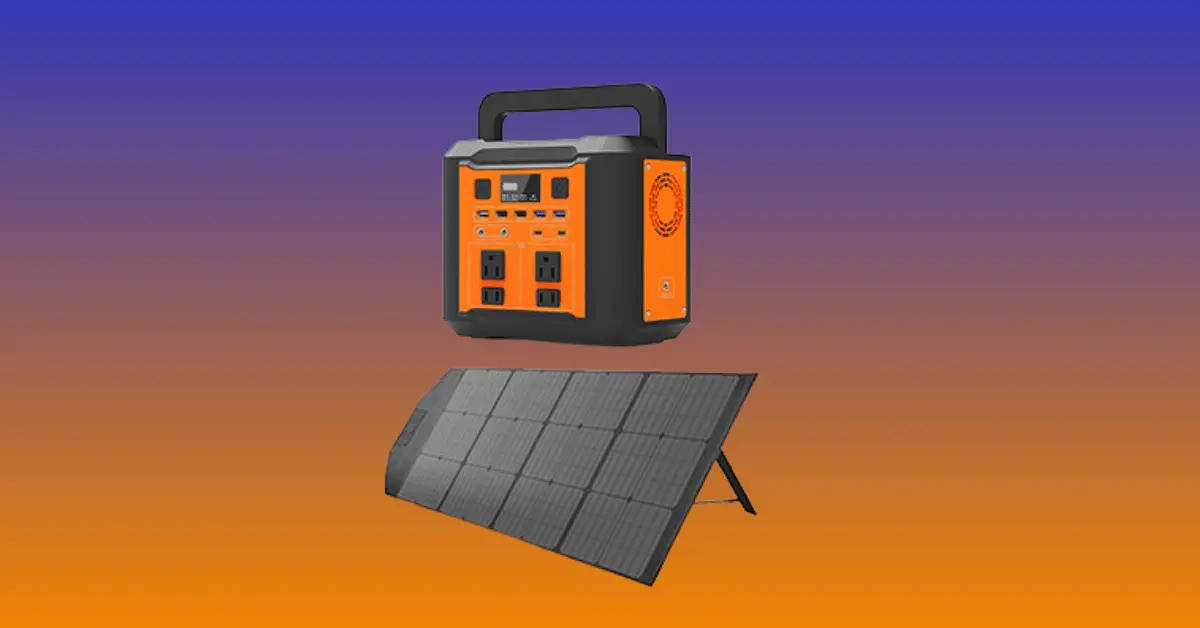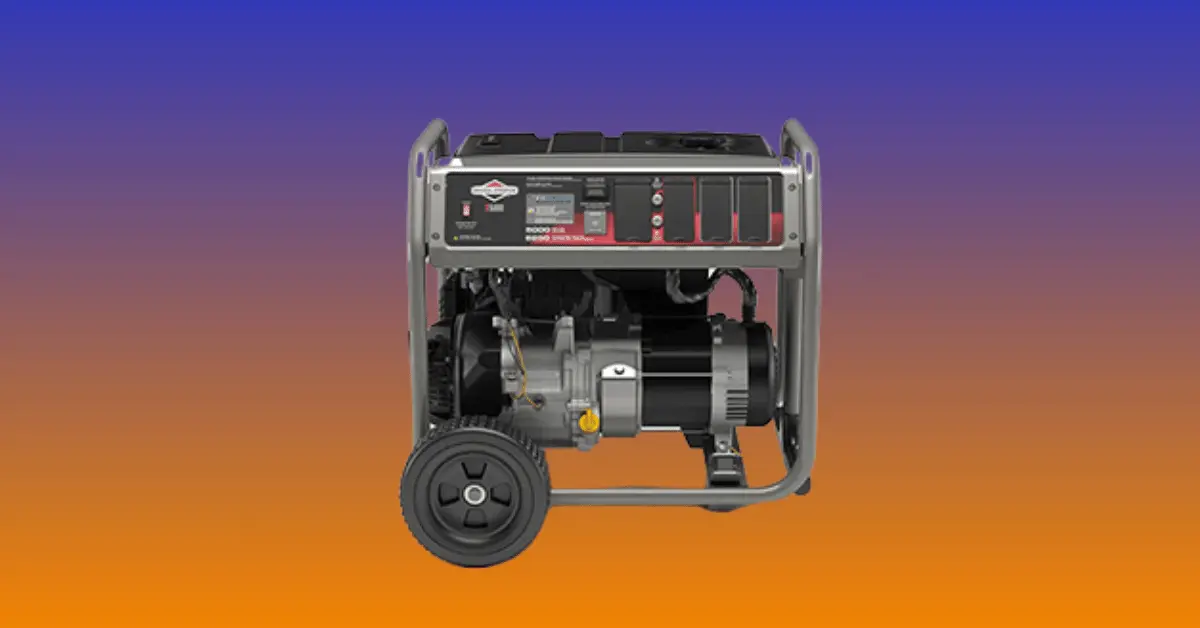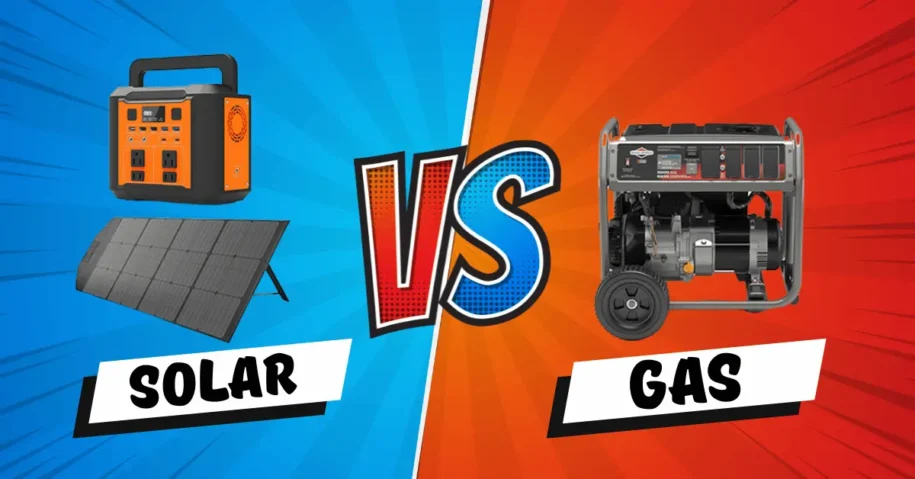Generators are essential when the main power goes out, providing a reliable backup to keep our homes and businesses running smoothly. Whether it’s due to a power outage or you’re in a remote area without access to the grid, generators are a lifesaver. There are two main types of generators: solar and gas. Each has its own pros and cons, and knowing these can help you decide the best fit for your needs.
What is a Solar Generator?

A solar generator uses solar panels to capture energy from the sun. This energy is then converted into electricity and stored in a battery. You can use the electricity stored in the battery when you need power. Solar generators are becoming increasingly popular due to their environmental benefits and technological advancements.
Benefits of Solar Generators
- Eco-Friendly: Solar generators are great for the environment. They don’t produce harmful emissions, making them a clean energy source.
- Quiet Operation: These generators operate silently, making them ideal for residential areas, offices, and places where noise can be problematic.
- Free Energy Source: Once you invest in solar panels, the energy from the sun is free. You don’t have to pay for fuel.
- Low Maintenance: Solar generators have no moving parts, which means less need for regular maintenance and repairs.
See from us more related:
Drawbacks of Solar Generators
- High Initial Cost: The upfront cost of buying and installing solar panels can be high.
- Weather Dependent: Solar generators need sunlight to work. They are less effective on cloudy or rainy days.
- Slow Charging: It takes time to charge the battery. It would help if you planned to ensure you have enough stored power when required.
What is a Gas Generator?

A gas generator creates electricity by burning fuel, usually gasoline or propane. This process generates power quickly, making gas generators a reliable source of backup power during outages or in areas without electricity.
Benefits of Gas Generators
- Quick Power Supply: Gas generators provide power almost immediately. You don’t need to wait for the sun or charging times.
- High Power Output: They can produce a lot of electricity, which is excellent for large homes or businesses.
- Portability: Many gas generators are designed to be portable, allowing you to move them to different locations as needed.
- Lower Initial Cost: Gas generators generally cost less to buy than solar generators.
Drawbacks of Gas Generators
- Pollution: Burning fuel produces emissions that contribute to air pollution and environmental harm.
- Noise: Gas generators are noisy, which can be disruptive in quiet environments.
- Fuel Costs: Running a gas generator requires continuous fuel purchases, which can increase over time.
- Maintenance: These generators have moving parts that can wear out and require regular maintenance.
Comparison Table: Solar vs Gas Generator
| Feature | Solar Generator | Gas Generator |
|---|---|---|
| Eco-Friendly | Yes | No |
| Noise Level | Low | High |
| Initial Cost | High | Low |
| Fuel Cost | None | High |
| Maintenance | Low | High |
| Power Output | Variable | High |
| Weather Dependent | Yes | No |
Which One Should You Choose?
The choice between solar and gas generators depends on various factors, including your environmental concerns, power needs, budget, and location.
Consider Your Budget
Solar generators have a higher initial cost but don’t require fuel, making them more economical in the long run. Gas generators are cheaper to buy but incur ongoing fuel costs.
Think About Your Power Needs
A gas generator might be more suitable if you need a lot of power quickly. Solar generators are better for sustained, low-power needs, especially in sunny regions.
Look at Your Location
Solar generators perform best in areas with abundant sunlight. In contrast, gas generators are more reliable in regions with frequent cloudy or rainy weather.
Check the Noise Level
Due to their silent operation, solar generators are preferable for a quiet environment, especially in residential areas or workplaces. Gas generators can be loud and may not be suitable for all settings.
Frequently Asked Questions
What Are Solar Generators? Solar generators convert sunlight into electrical power using solar panels.
How Do Gas Generators Work? Gas generators produce electricity by burning fuel, usually gasoline or propane.
Are Solar Generators Environmentally Friendly? Yes, solar generators produce no emissions, making them eco-friendly.
Can Gas Generators Be Used Indoors? No, gas generators produce harmful fumes and should be used outdoors.
Conclusion
Both solar and gas generators have their unique advantages and disadvantages. Your choice should be based on your needs, budget, and environmental considerations. Solar generators are ideal for those who prioritize eco-friendliness and low maintenance, while gas generators are better for those who need quick, high-power output regardless of the weather. By weighing these factors carefully, you can make an informed decision that ensures you have reliable power whenever required.

















